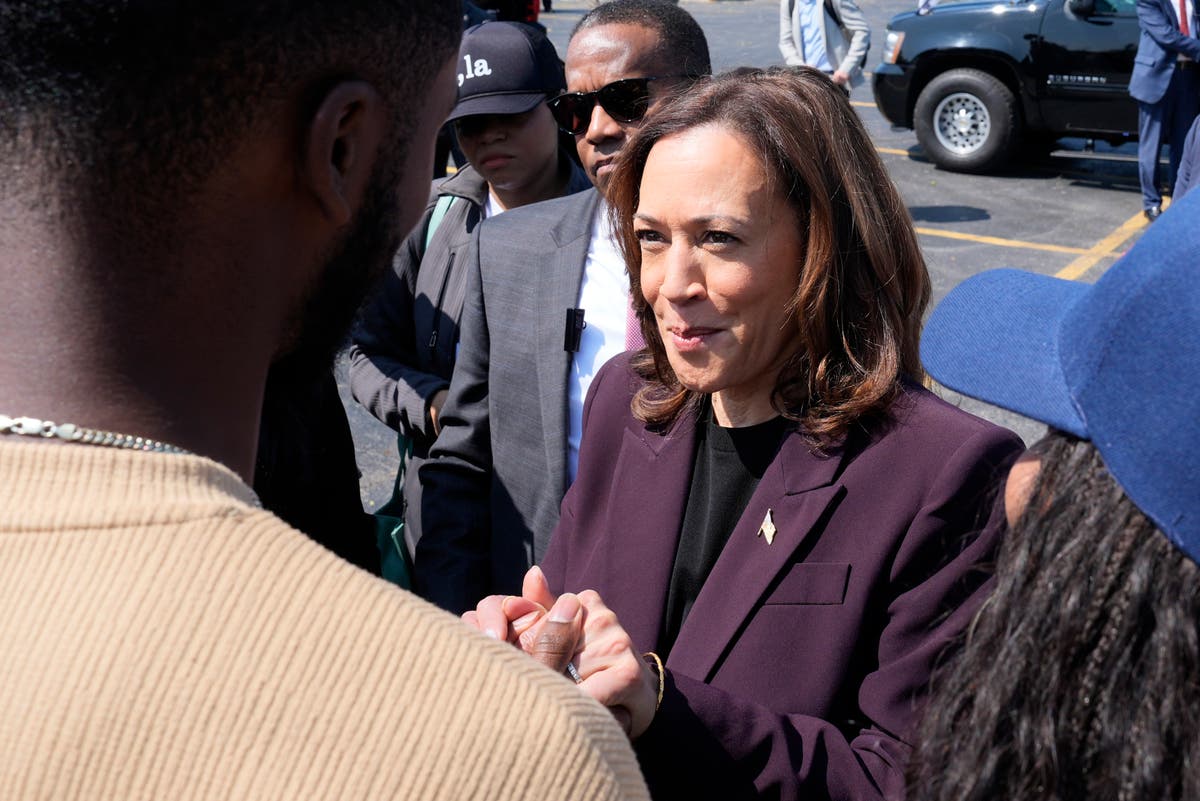The National Federation of Republican Assemblies (NFRA) has cited the infamous 1857 Dred Scott Supreme Court decision, which stated that enslaved people weren’t citizens, to argue that Vice President Kamala Harris is ineligible to run for president according to the Constitution.
The group also challenged the right of Vivek Ramaswamy and Nikki Haley to appear on Republican primary ballots.
The Republican group’s platform and policy document noted that “The Constitutional qualifications of Presidential eligibility” states that “No person except a natural born Citizen, shall be eligible, or a Citizen of the United States, at the time of Adoption of this Constitution, shall be eligible to the Office of President.”
The same document included former President Donald Trump’s running mate Ohio Senator JD Vance on a list of preferred candidates for vice president.
The group, which adopted the document during their last national convention held between October 13 and 15 last year, goes on to argue in the document that a natural-born citizen has to be born in the US to parents who are citizens when the child is born, pointing to the thinking of Supreme Court Justices Antonin Scalia and Clarence Thomas.



You are correct that children of immigrant ancestors who are naturalized citizens would be citizens, I acknowledge my error here.
But there is still a major issue with this. Say a US citizen marries and has a child with an immigrant (non-naturalized). I assume this is not at all uncommon in our nation’s history, but I don’t know any statistics on it. Anyway, as far as anyone at the time is concerned, that child is a natural born citizen because they were born in the USA (birthright citizenship) to an American citizen. Those are the rules as I understand them. Since the child is already considered a natural born citizen, they would not go on to be naturalized.
This group is claiming that “a natural-born citizen has to be born in the US to parents who are citizens when the child is born” though. That means that the child in my example is not a natural born citizen by this group’s rules. If this group’s interpretation prevails, then that child, who obviously would not go on to be naturalized, was not really a citizen at all because one of their parents was not naturalized.
That further means, again by this group’s logic, any decedents from such a union would also not really be citizens because none of their children would go on to be naturalized before having children of their own. Any US citizen with an ancestor who was born to a non-naturalized immigrant (at the time of birth) is not actually a natural born citizen.
I would imagine a huge fraction of American citizens would fall into this category because of some ancestor being born to a non-naturalized immigrant and a citizen parent. I have no idea how one would determine what that fraction is though.
If this was the law, I’m not sure why you assume that these non-citizens would not get naturalized? My family moved to the US when I was young and I became a naturalized citizen when I was in college.
I don’t know why you think no one would get naturalized in this scenario?
To be clear, I am arguing from the bizarre positions of the group in the posted article. I’m not agreeing with the group, just trying to point out some of the fallout should this group get their arguments before SCOTUS and win.
For the sake of argument, let’s say your parents had moved to the states before you were born. Since you would have been born in the states, you would have had birthright citizenship according to the 14th Amendment. Why would you then go through the process to become a naturalized citizen if you already had birthright citizenship? You wouldn’t, of course. This group is trying to argue that as a child of immigrants, you would not be a citizen just based on being born in the USA. Your own children in this scenario would not be citizens either since you would not have gone on to be naturalized and would not be a citizen yourself.
This group’s position is that anyone not born of two US citizens (at the time of birth) is not a US citizen. Neither, therefore, are their decedents because no one who thinks they are already a citizen would go out and get naturalized.
If you are born in the USA, your parent’s citizenship is irrelevant. Have you ever heard the term “anchor baby”? Also, if one of your parents is a US Citizen then you are a US Citizen no matter where you were born. (There are some refinements to this that have changed over the years regarding how much time the parent has lived in the US) That’s what made the Obama thing so stupid — it doesn’t matter if he was born overseas, he’d still be a US citizen via his mother.
Correct. This group is arguing against that and claiming one is not a citizen unless *both *parents are current US citizens. I’m pointing out the flaws in their argument.